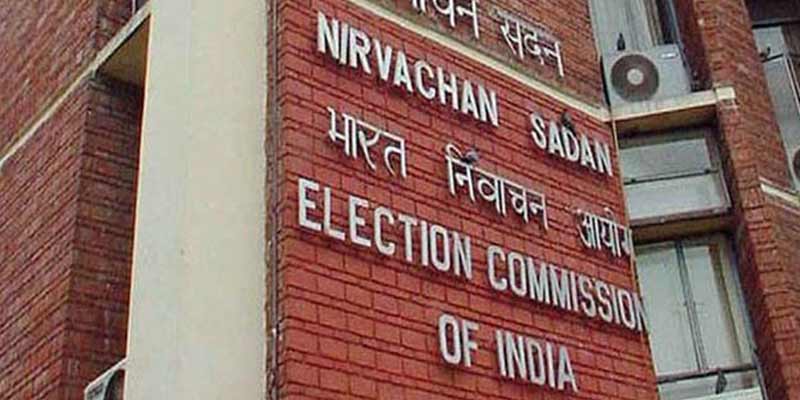- India
- Dec 13
Rajya Sabha passes Bill to regulate appointments of CEC, election commissioners
• Rajya Sabha passed a Bill to regulate the appointment and service terms of Chief Election Commissioner and election commissioners on December 12.
• It incorporated key amendments like retaining their status at par with Supreme Court judges, upgrading the search committee and inserting a new clause to protect them from court cases while discharging their official duties.
• While the Chief Election Commissioner and other Election Commissioners (Appointment, Conditions of Service and Term of Office) Bill, 2023 was passed by a voice vote, opposition members alleged the proposed measure subjugates the poll authority to the Executive and violates the Constitution.
• They also alleged that it was an attempt to circumvent the Supreme Court order on the appointment of CEC and election commissioners.
What is the purpose of this Bill?
• The matters regarding conditions of service of Chief Election Commissioner and other election commissioners, the procedure for transaction of business of the Election Commission, etc are presently governed by the Election Commission (Conditions of Service of Election Commissioners and Transaction of Business) Act, 1991.
• The said Act do not contain provisions regarding the qualifications, search committee for preparing panel of persons for consideration and recommendation by the selection committee for appointment as Chief Election Commissioner and other election commissioners and other incidental provisions.
• In March earlier this year, the Supreme Court ruled that a three-member panel, headed by the Prime Minister and comprising the leader of the opposition in Lok Sabha and the Chief Justice of India, will select the CEC and ECs till a law is framed by Parliament on the appointment of these commissioners.
• Law Minister Arjun Ram Meghwal said the new legislation has been necessitated as the earlier Act had certain weaknesses.
Key points of the Bill:
• The Chief Election Commissioner and other election commissioners shall be appointed from amongst persons who are holding or have held a post equivalent to the rank of secretary to the government of India and shall be persons of integrity, who have knowledge of and experience in management and conduct of elections.
• A search committee headed by the Minister of Law and Justice and comprising two other members not below the rank of secretary to the government of India, shall prepare a panel of five persons for consideration of the selection committee, for appointment as the Chief Election Commissioner and other election commissioners.
• The Chief Election Commissioner and other election commissioners shall be appointed by the President on the recommendation of a selection committee consisting of:
a) Prime Minister - chairperson
b) Leader of Opposition in the House of the People - member
c) A Union Cabinet Minister to be nominated by the PM - member.
• The Chief Election Commissioner and other election commissioners shall be paid a salary which is equal to the salary of a judge of the Supreme Court.
• The Chief Election Commissioner and other election commissioners shall hold office for a term of six years from the date on which he assumes his office or till he attains the age of 65 years, whichever is earlier.
• The Chief Election Commissioner and other election commissioners shall not be eligible for re-appointment.
• Where an election commissioner is appointed as Chief Election Commissioner, his term of office shall not be more than six years in aggregate as the election commissioner and the Chief Election Commissioner.
• The Chief Election Commissioner shall not be removed from his office except in like manner and on the like grounds as a judge of the Supreme Court.
• The other election commissioners shall not be removed from office except on the recommendation of the Chief Election Commissioner.
• A clause related to protection from initiation of legal proceedings against the Chief Election Commissioner and election commissioners for actions taken while carrying out their duties has also been introduced through the amendments.
• The new clause comes against the backdrop of the Telangana High Court placing under suspension a special sessions judge in connection with a direction given by him to police for registering an FIR against Chief Election Commissioner Rajiv Kumar and several others, saying the judge acted in undue haste.
Additional read:
The Election Commission needs to be independent
Indian democracy will work only when the institutions which have the responsibility to preserve democracy work. Each institution in our Constitution has its demarcated role, which can only be fulfilled if the people who are running these institutions are responsible. The people who run these institutions need to be accountable to the people, and therefore the process of selecting them has to ensure the independence of the institution.
Manorama Yearbook app is now available on Google Play Store and iOS App Store

